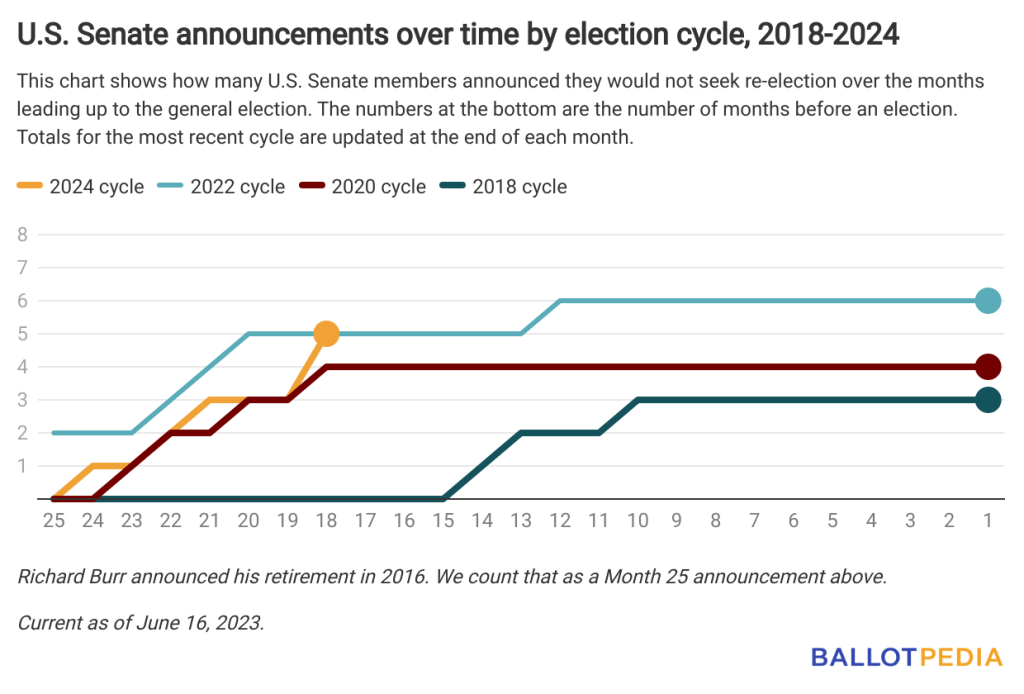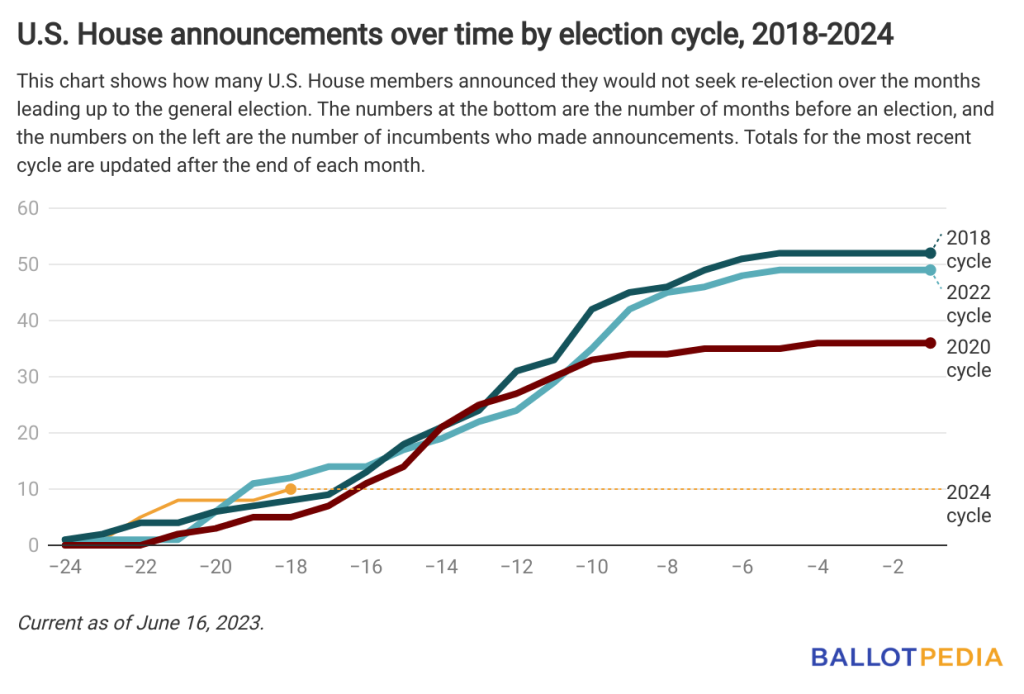Fifteen members of Congress—five members of the U.S. Senate and ten members of the U.S. House—have announced they would not seek re-election in 2024.
This includes 11 Democrats—four in the Senate and seven in the House—as well as four Republicans—U.S. Sen. Mike Braun (R-Ind.) and three House members.
The same number of U.S. Senators (5) had announced they were not running for re-election at this point in the 2022 election cycle. Four had announced at this point in the 2020 cycle, and none had announced at this point in the 2018 cycle.

The 10 U.S. House members who have announced they are not running for re-election in 2024 are two fewer than the 12 members who had announced at this point in the 2022 election cycle. Retirements in this election cycle currently exceed those at the same point in the 2020 (five) and 2018 (eight) election cycles.

Of the Senators not running for re-election, Sens. Diane Feinstein (D-Calif.), Debbie Stabenow (D-Mich.), Ben Cardin (D-Md.), and Tom Carper (D-Del.)—all Democrats—are retiring from public office. Braun is running for governor of Indiana.
Nine of the 10 U.S. House members not running for re-election are running for the U.S. Senate, including six running for the open seats in California, Maryland, Michigan, and Indiana, specifically:
- Reps. Barbara Lee (D), Katie Porter (D), and Adam Schiff (D) are running to replace Feinstein;
- Rep. David Trone (D) is running to replace Cardin;
- Rep. Elissa Slotkin (D) is running to replace Stabenow; and,
- Rep. Jim Banks (R) is running to replace Braun.
And three other House members are challenging incumbent senators:
- Rep. Alex Mooney (R) is running against Sen. Joe Manchin (D) in West Virginia, though Manchin has not yet announced whether he will seek re-election;
- Rep. Rubén Gallego (D) is running against Sen. Kyrsten Sinema (I) in Arizona; and,
- Rep. Colin Allred (D) is running against Sen. Ted Cruz (R) in Texas.
Rep. Victoria Spartz (R-Ind.) is the only House incumbent to announce retirement from public office.
Learn More






